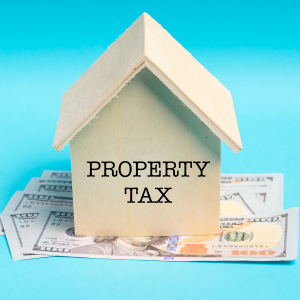
Taxes You Owe When Selling a Home in Anchorage, AK
When most people sell their home, they only focus on the bottom line: getting the highest possible payout. But if you’ve sold a house before, you know there’s more to it than just setting a price. Selling a home is rarely straightforward, with the ups and downs of the market, back-and-forth negotiations, and endless details that demand your attention every step of the way.
But one thing remains constant: taxes.
After all the time and effort spent preparing the home for sale, many people forget to factor in the taxes that come with it. We all want top dollar, but don’t forget: the higher the gain, the more taxes you may owe. That’s why it’s essential to familiarize yourself with the tax implications of your home sale. With the proper knowledge and strategy, you can position yourself to claim every break you’re entitled to and keep more of your hard-earned gains.
Taxes You Should Be Aware Of Before Selling Your Home
The good news is that Alaska is one of the more tax-friendly states. Most people aren’t heavily impacted by taxes when selling their Alaskan homes, thanks to several exemptions such as the absence of a personal state income tax and various federal tax breaks. Anchorage Home Buyers can help guide you through these benefits and ensure you take full advantage of available exemptions.
However, you’re still not entirely off the hook. While Alaska may not levy many state-level taxes, your home sale could still be subject to federal taxes that you must be aware of.
Here’s a list of taxes you may be responsible for after selling your home:
- Property Taxes
- Transfer Taxes
- Capital Gains Taxes
- Net Investment Income Tax (NIIT)
These are generally the taxes that may affect your home sale, but tax liability is highly case-specific. None of these may apply; in others, multiple ones might. That’s why it’s essential to understand each tax and determine what applies to your situation.
Remember: The Internal Revenue Service (IRS) does not send repeated reminders. Typically, they issue one notice for applicable taxes. You must stay on top of any owed taxes, submit timely payments, and contact the appropriate agencies, such as the Municipal Tax Office, to avoid late payment penalties and interest.
1. Property Taxes

Most homeowners are already familiar with property taxes, which are assessed annually, not just at the time of sale. Property taxes are determined at the state and local (municipal) level, so rates can vary significantly depending on where you live.
In Anchorage, one of Alaska’s largest urban areas, property tax rates are among the highest in the state. They typically range from 1.17% to 1.41%, notably above the national average of around 0.90%.
Your property tax rate fluctuates based on your home’s assessed value. The local government determines this value using several factors, including market conditions, recent comparable sales, potential income generation (for income-producing properties), and replacement cost.
This process ensures your home is taxed fairly based on its actual value. However, you’re not entirely at the mercy of the assessment. If you believe your property has been over-assessed, you can appeal to the Board of Equalization to contest the valuation.
Prorated Property Taxes After A Sale
What happens when you sell your home mid-year if property taxes are paid annually? Don’t worry, you won’t have to shoulder the burden for the entire year. You’re only responsible for the portion of the year when you owned the home.
This is called prorated property taxes, where the annual property tax is fairly divided between the seller and the buyer based on how long each party owned the property during that tax year. The seller is responsible for property taxes up to the closing date, and the buyer becomes responsible starting from the closing date.
The seller will often have already paid the whole year’s property taxes in advance. That doesn’t mean the buyer gets a free ride. Unless you’re a pro negotiator and you’ve negotiated otherwise (for example, as part of a buyer concession), the buyer is typically required to reimburse the seller for their share of the taxes at closing. This is usually handled through the settlement statement and facilitated by the title or escrow company.
If you have questions about prorated property taxes or need help navigating the financial details of selling your home mid-year, contact us. Our team can guide you through the process and ensure everything is handled smoothly at closing.
Property Tax Exemptions In Anchorage
Not thrilled about your yearly property tax bill? Don’t get too discouraged. Alaska, especially Anchorage, offers generous tax exemptions that can ease the financial burden of homeownership. If you meet the criteria, you may be able to significantly reduce or even eliminate part of your property tax liability.
- Residential Exemption: This is the most common exception and applies to many homeowners. If the property is your primary residence and you both own and occupy it, you may qualify for a 40% exemption on the assessed value of your home, up to a maximum of $75,000.
- Senior Citizen Exemption: If you’re 65 years or older before January 1 of the year you’re applying, and the home is your primary residence, you may be exempt from paying property taxes on up to $150,000 of the home’s assessed value.
- If you’re a widow or widower of someone who qualified, you may still receive the exemption if you’re at least 60 years old and live in the same home.
- Disabled Veteran Exemption: If you’ve bravely served and returned home with a disability, you may be eligible for an exemption of up to $150,000 of your home’s assessed value. This applies to your primary residence only.
- Even after passing, your spouse can continue to benefit from this exemption if they are at least 60 years old and remain in the home.
- Military Service Widow / Widower Exemption: Spouses of deceased military service members may also qualify for a $150,000 exemption on their primary residence, provided they meet age and residency requirements.
Disaster Exemption: If your home is at least 50% damaged by fire or other qualifying disasters, you may be eligible for a temporary exemption. The application must be submitted within 120 days of the incident.
Take note: you must know the application deadline (March 15 for 2025) to benefit from these exemptions. You must apply, so don’t let disorganization or forgetfulness cause you to pay more than necessary. These exemptions can change at any time, so it’s essential to stay current. For current information, visit the Municipality of Anchorage website.
2. Transfer Taxes
In many states, real estate transactions come with transfer taxes, but lucky for you, Alaska is one of the few states that doesn’t impose a statewide transfer tax on home sales. It’s one of only 14 states that skip this fee altogether.
Even better news? Anchorage doesn’t charge a local transfer tax either. That’s one less thing to worry about when selling your home.
That said, don’t confuse this with having zero closing costs. You’ll still be responsible for some standard fees at closing, such as:
- Title insurance
Escrow or settlement fees - Recording fees
So while the transfer tax is off your plate, budget for the remaining costs to avoid surprises on closing day.
3. Capital Gains Taxes

The biggest tax hit you’ll likely face after selling your home is the capital gains tax. This tax applies to the increase in your home’s value from when you first bought it to when you sell.
For example, if you bought your home for $500,000 and sold it for $800,000, you’ll be taxed on the $300,000 gain after closing. However, as long as you still own the home, that increase in value is considered an unrealized gain, which means it’s not taxed until the sale happens.
Capital gains can be taxed at the federal and state levels, but here’s some good news for Alaskans: Alaska is one of just nine states that do not impose a state capital gains tax. So, while most US homeowners might pay taxes at both levels, you’ll only need to pay capital gains tax federally, which can mean significant savings.
How much tax you’ll owe depends on how long you’ve owned the home, which determines whether your gain is considered a short-term or long-term capital gain:
- Short-term capital gains: If you’ve owned your home for less than a year before your sale.
- Long-term capital gains: If you’ve owned your home for over a year before your sale.
Short-term Capital Gains
Selling a home you’ve owned for less than a year is generally less favorable from a tax perspective because the profit is classified as a short-term capital gain. Unlike long-term gains, short-term capital gains don’t benefit from special tax rates. Instead, they’re taxes on ordinary income.
That means any profit from your home sale is added to your total annual income and taxed according to your federal income tax bracket, which ranges from 10% to 37% as of 2025.
Because this gain increases your total taxable income, it can push you into a higher tax bracket, meaning a portion of your profit may be taxed at an even higher rate than your regular income. So, unless there’s an urgent need to sell, it often makes financial sense to hold on to the property for at least a year to avoid these higher tax consequences.
If you need to sell your house for cash in Anchorage and other Alaska cities, weigh the tax implications carefully and consider working with a local real estate expert to explore your best options.
Long-term Capital Gains
If you can wait at least one year before selling your property, you likely benefit from the more favorable long-term capital gains tax rates. This is generally the more brilliant move from a tax perspective.
Long-term capital gains are taxed at reduced federal rates of 0%, 15%, and 20%, depending on your total taxable income for the year. These thresholds are adjusted annually, so checking the current IRS guidelines is essential to know where you fall.
You may significantly reduce your tax bill by holding your home for over a year. If you also meet the requirements for the home sale exclusion, your tax savings could be even greater.
Note: You can only claim the capital gains tax exclusion once every two years. So, if you own multiple properties, strategically plan your sales to maximize the tax benefit.
Capital Gains Tax Exemptions
One of the most valuable tax breaks available to homeowners is the capital gains tax exclusion, which can significantly reduce or even eliminate your tax bill after a home sale.
- Single filers can exclude up to $250,000 of capital gains from taxes.
- Married couples filing jointly can exclude up to $500,000.
- Unmarried co-owners may each exclude up to $250,000 if both individuals independently meet the eligibility requirements.
To claim the full exclusion, you must meet the following criteria:
- Primary Residence Test: The home must have been your primary residence.
- Ownership Test: You must have owned the home for at least two years during the five years before the sale.
- Use Test: You must have lived in the home for at least two years within the same five-year period.
Note: The two years of residence do not have to be continuous–they can be cumulative over the five-year window.
If you don’t meet other requirements for the full exclusion, don’t worry, you may still qualify for a partial capital gains exclusion.
Partial Capital Gains Exclusion
Life doesn’t always go as planned, and sometimes you may need to sell your home before meeting the full capital gains tax exclusion requirements. The good news is that the IRS allows for a partial exclusion of capital gains in certain situations.
You may qualify for a partial exclusion if your home sale was due to:
- A change in employment that required relocation
- A health condition where your doctor recommended the move
- A divorce or separation
- Other unforeseen circumstances, such as financial hardship, natural disaster, or death
Even if you don’t meet the full 2-year ownership and user requirements, you can still receive a prorated tax break based on how long you lived in and owned the home.
How to Know Your Capital Gain After The Sale
To determine whether you’ll owe capital gains tax after selling your home, you first need to calculate your adjusted basis. This is essentially the total investment you’ve made in the property, including what you paid and any qualifying improvements.
Start with your original purchase price, then add the following:
- Costs associated with buying the home (like title fees or closing costs)
- Capital improvements made to the property (major renovations or additions, not simply regular maintenance)
If applicable, subtract any depreciation. This only comes into play if you used the property for rental or business purposes. What you have left is your adjusted basis.
Once you have that, the calculation is straightforward:
Sale Price – Adjusted Basis = Capital Gain
For example, let’s say you bought your home for $500,000. Over the years, you invested $80,000 into capital improvements, maybe a new kitchen or an upgraded roof, which brings your adjusted basis to $580,000.
You sell the home for $800,000.
$800,000 – $580,000 = $220,000 capital gain
In this case, you can benefit from capital gains tax exemption, owe nothing to the IRS, and keep everything for yourself.
4. Net Investment Income Tax

The net investment income tax (NIIT) is a 3.8% federal tax that may apply to certain types of investment income, including profit from the sale of a home, but only if your income exceeds specific thresholds.
This tax was introduced as part of the Affordable Care Act (ACA), known as Obamacare, to help fund health care reform. It mainly affects higher-income earners.
For home sellers, the NIIT only applies to capital gains that exceed the standard income thresholds:
- 200,000 for single fillers
- 250,000 for married couples filing jointly
- 125,000 for married filing separately
If your modified adjusted gross income (MAGI) is above this threshold and you have a taxable gain from your home sale after accounting for the home sale exclusion, the excess amount may be subject to the 3.8% NIIT.
For example, you and your spouse sell your primary residence and realize a $600,000 gain. You qualify for the $500,000 exclusion, so only the $100,000 is taxable. If your MAGI is over $250,000, the $100,000 gain is subject to the 3.8% NIIT.
The good news? Most homeowners don’t need to worry about this tax, especially if their gain falls under the $250,000/ $500,000 exclusion. But for high-income earners or luxury property sales, it’s something to keep on your radar.
Closing Thoughts: Taxes When Selling Your House in Anchorage, AK
Selling your home doesn’t automatically mean a hefty tax bill. Many homeowners qualify for tax breaks that significantly reduce or eliminate their owed taxes. These benefits exist to encourage homeownership and help ease the financial burdens associated with buying and selling property.
That said, no two situations are the same regarding real estate taxes. How long you’ve owned the property, whether primary or secondary, your filing status, and your profit from the sale all affect your final tax outcome.
If you’re considering working with cash home buyers in Fairbanks and surrounding cities in Alaska, it’s essential to understand how a quick sale might impact your tax obligations.
And because tax laws can change year to year, consulting with a qualified tax professional or CPA is always a good idea. They stay current on the latest tax code changes and can help you make the best decision for your situation, saving you thousands.
A little planning now can go a long way later.
Need To Sell Your Anchorage Home Fast For Cash?
You’re in the right place! At the Anchorage Home Buyers, we purchase property as-is, which means we’ll buy your home in any condition–no repairs, cleaning, or showings required. We buy houses all year round, so it’s always a good time to sell with us.
Trying to time yourself to qualify for the long-term capital gains tax exemption, but still need to sell fast? No problem. Whether you want to sell next week or exactly one year and a day from now, we work on your timeline. Because we buy homes with cash, closings are much faster than traditional sales. What usually takes months, we can complete in as little as seven days, and yes, we’ve done it many times before. Our past clients couldn’t be happier, just check out their stellar reviews on our page.
We’re a trusted local home buying company in Anchorage, committed to offering fair, no-obligation cash offers that work for you.
Call us at (907) 331-4472 or fill out the form below to receive your cash offer within 24 hours. There is no pressure—just a straightforward solution.
Helpful Anchorage Blog Articles
- How To Opt Out Of An HOA In Anchorage, AK
- Can Medical Debt Threaten Your Home Ownership In Anchorage, AK?
- Home Equity Requirements For Selling Your House In Anchorage, AK
- Selling Your Anchorage Home After Three Years
- Selling Your House To A Developer In Anchorage
- Home Equity Requirements For Selling Your House In Anchorage, AK
- Can You Sell A House With Asbestos In Anchorage, AK
- What Taxes Do I Have To Pay When I Sell My House In Anchorage, AK
- Selling a Home That Needs Repairs in Anchorage, AK
- Understanding Tenant Damage And Property Rights In Anchorage, AK
- Sell A Home With A Reverse Mortgage In Anchorage, AK
- Average Cost to Sell a House in Anchorage, AK
- What To Do If You Inherit a Distressed Home in Anchorage, AK
- Can You Sell a House in Foreclosure in Anchorage, Alaska?

